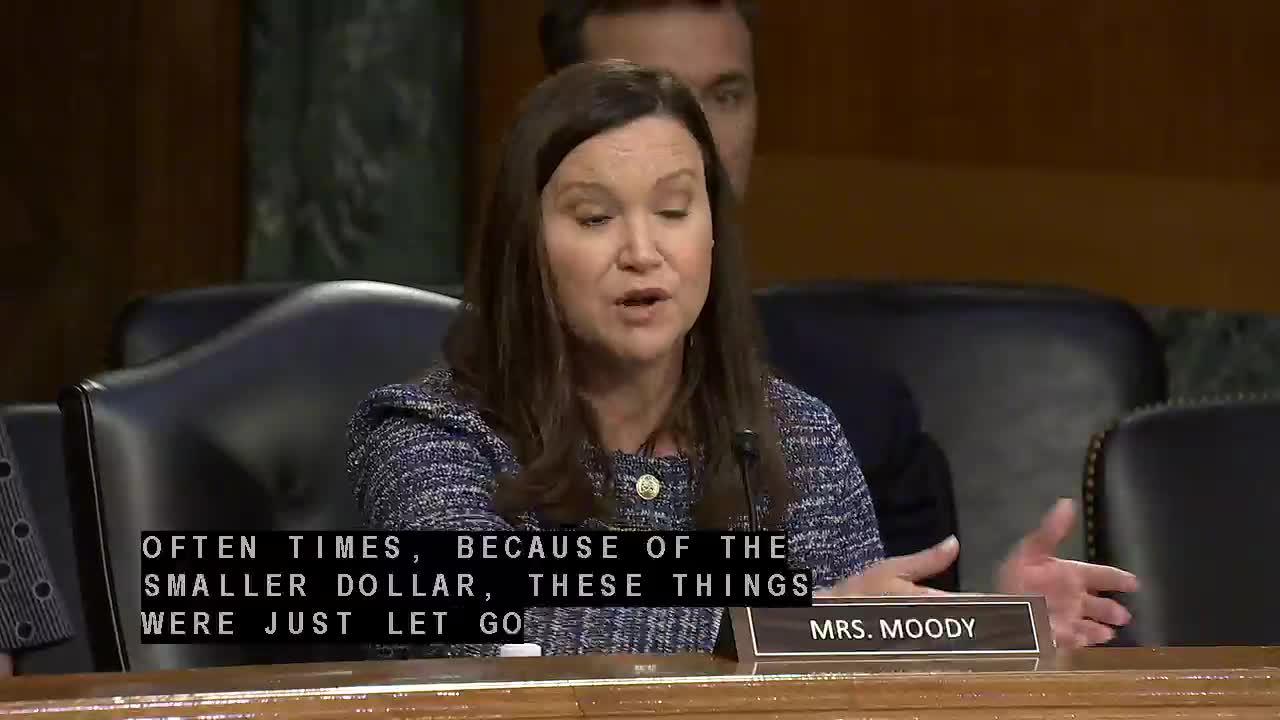Senators Discuss Strategies to Combat Elder Fraud and Protect Seniors from Scams
July 30, 2025 | Aging (Special), Special, Select and Other Committees - House & Senate, Congressional Hearings Compilation
This article was created by AI summarizing key points discussed. AI makes mistakes, so for full details and context, please refer to the video of the full meeting. Please report any errors so we can fix them. Report an error »

In a pivotal meeting held by the U.S. Aging (Special) Committee on July 30, 2025, experts and lawmakers gathered to address the pressing issue of elder abuse and neglect, particularly in the context of financial scams targeting seniors. The atmosphere was charged with urgency as participants shared insights and strategies aimed at combating these crimes that have increasingly exploited vulnerable populations.
One of the standout discussions revolved around the innovative approach taken by a statewide expert team in Florida, which has become a national blueprint for tackling elder fraud. This team, comprising law enforcement from both state and local levels, has successfully frozen millions of dollars in assets that would have otherwise vanished into the depths of cryptocurrency scams. The collaborative effort emphasizes the importance of education and the strategic use of existing laws to hold perpetrators accountable.
Miss Marotta, a key witness from Florida, highlighted the necessity of outreach not only to older adults but also among organizations working with them. She stressed the value of multidisciplinary teams that can effectively connect victims with law enforcement and support services. This approach aims to streamline communication and ensure that resources are utilized efficiently to combat elder abuse.
The meeting also spotlighted the alarming rise of technology-driven scams, including deep fake frauds. Mr. Bunn, a prosecutor, underscored the need for legal frameworks that can adapt to rapidly evolving technologies. He pointed out that while bad actors exploit these advancements, law enforcement must also harness technology to enhance their investigative capabilities.
The Long Term Care Ombudsman program was discussed as a vital resource for advocating on behalf of seniors in long-term care facilities. This program not only addresses complaints but also empowers residents to seek quality care, highlighting the importance of advocacy in preventing abuse before it escalates.
As the meeting progressed, the conversation shifted to the financial sector's role in protecting seniors. Lawmakers expressed concern over the lack of awareness and preventive measures in place, particularly regarding cryptocurrency scams. The introduction of the Guard Act was presented as a legislative effort to enhance training for local law enforcement, enabling them to better identify and assist victims of financial abuse.
In conclusion, the discussions at this meeting underscored a collective commitment to raising awareness and implementing effective strategies to combat elder abuse. As the aging population continues to grow, the need for coordinated efforts among law enforcement, advocacy groups, and the financial sector becomes increasingly critical. The insights shared during this meeting not only shed light on the challenges faced by seniors but also offered a hopeful glimpse into the collaborative solutions being developed to protect them.
One of the standout discussions revolved around the innovative approach taken by a statewide expert team in Florida, which has become a national blueprint for tackling elder fraud. This team, comprising law enforcement from both state and local levels, has successfully frozen millions of dollars in assets that would have otherwise vanished into the depths of cryptocurrency scams. The collaborative effort emphasizes the importance of education and the strategic use of existing laws to hold perpetrators accountable.
Miss Marotta, a key witness from Florida, highlighted the necessity of outreach not only to older adults but also among organizations working with them. She stressed the value of multidisciplinary teams that can effectively connect victims with law enforcement and support services. This approach aims to streamline communication and ensure that resources are utilized efficiently to combat elder abuse.
The meeting also spotlighted the alarming rise of technology-driven scams, including deep fake frauds. Mr. Bunn, a prosecutor, underscored the need for legal frameworks that can adapt to rapidly evolving technologies. He pointed out that while bad actors exploit these advancements, law enforcement must also harness technology to enhance their investigative capabilities.
The Long Term Care Ombudsman program was discussed as a vital resource for advocating on behalf of seniors in long-term care facilities. This program not only addresses complaints but also empowers residents to seek quality care, highlighting the importance of advocacy in preventing abuse before it escalates.
As the meeting progressed, the conversation shifted to the financial sector's role in protecting seniors. Lawmakers expressed concern over the lack of awareness and preventive measures in place, particularly regarding cryptocurrency scams. The introduction of the Guard Act was presented as a legislative effort to enhance training for local law enforcement, enabling them to better identify and assist victims of financial abuse.
In conclusion, the discussions at this meeting underscored a collective commitment to raising awareness and implementing effective strategies to combat elder abuse. As the aging population continues to grow, the need for coordinated efforts among law enforcement, advocacy groups, and the financial sector becomes increasingly critical. The insights shared during this meeting not only shed light on the challenges faced by seniors but also offered a hopeful glimpse into the collaborative solutions being developed to protect them.
View full meeting
This article is based on a recent meeting—watch the full video and explore the complete transcript for deeper insights into the discussion.
View full meeting